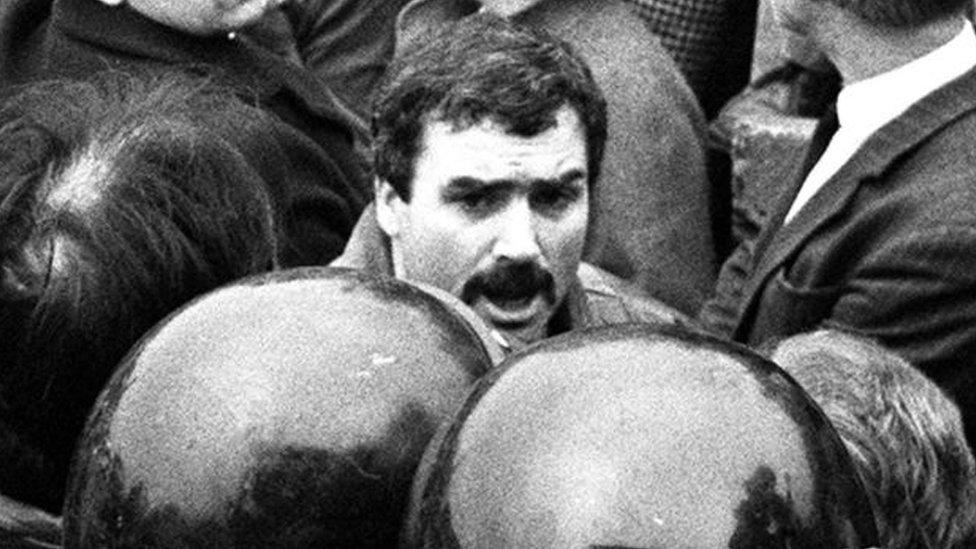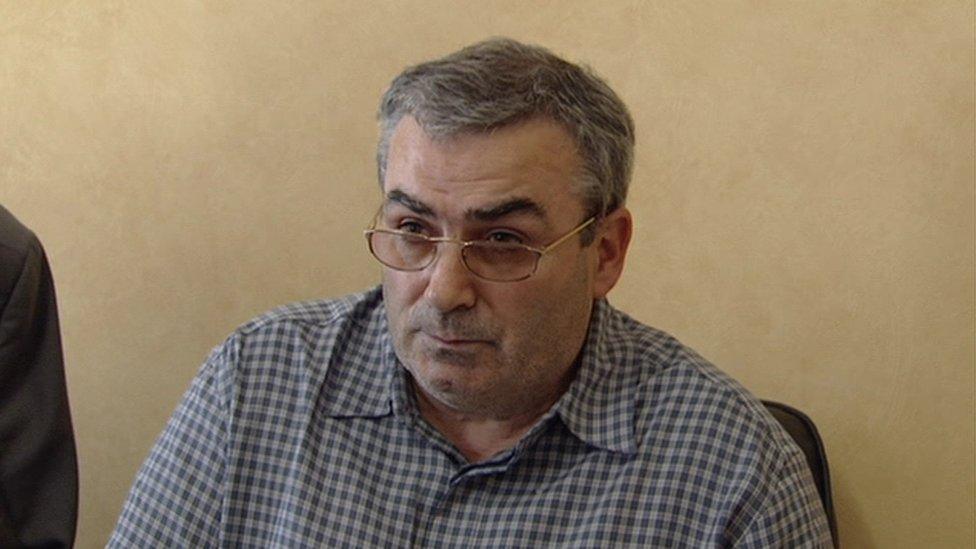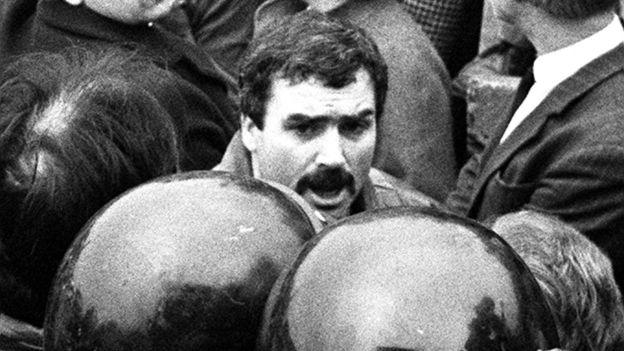Stakeknife: Fred Scappaticci 'facing more than 30 lawsuits'
- Published

Fred Scappaticci strenuously denies he was an Army agent within the IRA
A west Belfast man who denies being Britain's former top spy inside the IRA is now facing more than 30 potential lawsuits, the High Court has heard.
Writs have been issued against Fred Scappaticci, 72, in 24 separate cases.
Legal action has also been threatened by a further seven individuals over alleged kidnappings and interrogations.
The scale of litigation was revealed as police sought to protect material produced by a major probe into the agent codenamed Stakeknife.
Bedfordshire Chief Constable Jon Boutcher, who is heading the Operation Kenova investigation, believes he has uncovered evidence of criminal wrongdoing by both IRA and security force members.
A judge was told he now intends to submit a report for consideration on potential prosecutions either by the end of the year or early in 2020.

Who is Stakeknife?

Mr Scappaticci left Northern Ireland when identified by the media as Stakeknife in 2003
Fred Scappaticci is alleged to have been the most high-ranking British agent within the Provisional IRA, who was given the codename Stakeknife.
He was the grandson of an Italian immigrant who came to Northern Ireland in search of work.
He has admitted to being a republican but denied claims that he was an IRA informer.
He is believed to have led the IRA's internal security unit, known as 'the nutting squad', which was responsible for identifying and interrogating suspected informers.
Mr Scappaticci left Northern Ireland when identified by the media as Stakeknife in 2003.

Mr Scappaticci is being sued, along with the Ministry of Defence (MoD) and the PSNI, by Newry woman Margaret Keely.
She alleges that she was wrongfully arrested and held at Castlereagh police station in 1994 following an IRA attempt to murder a senior detective in east Belfast.
Mrs Keeley was released without charge, but claims she was then taken to a flat in the New Lodge area of the city and questioned by an IRA team.
Mr Scappaticci was one of the men who carried out two debriefing sessions, according to her account.
In court on Thursday, however, counsel for the MoD revealed the current total number of lawsuits against the alleged spy.
Tony McGleenan QC said: "There are 31 claims. Some have taken the form of correspondence (but) 24 writ actions have been issued.
"All of these name the second defendant (Scappaticci)."
'Ring-fenced'
Mr Justice Horner was told applications for closed material proceedings - so-called secret court hearings - is being considered for some of the cases due to issues of national security.
The new figure emerged as counsel for the police set out the case for ensuring all Operation Kenova's working papers are "ring-fenced" from disclosure in the civil claims.
An investigative team of more than 60 police and civilian personnel has secured 1,000 statements and obtained 12,000 documents and exhibits comprising more than one million pages.
Detectives have conducted hundreds of non-evidential interviews and meetings, more than 100 evidential interviews and dozens of interviews under caution.
The court heard the civil actions may have to be put on hold until decisions are taken on any prosecutions.
Adjourning proceedings, Mr Justice Horner acknowledged the potential further delay due to the issues raised.
- Published14 October 2016

- Published18 December 2018
